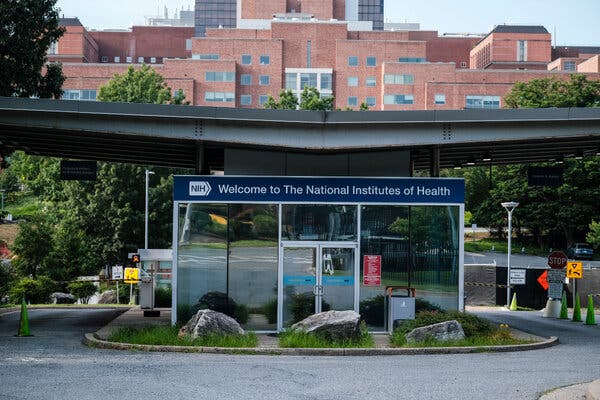Scientists Allege Vaccine Hostility in NIH Whistle-Blower Complaints

Two prominent scientists have lodged whistle-blower complaints that highlight significant internal conflicts at the National Institutes of Health (NIH) regarding vaccine research and funding. According to their claims, both researchers were removed from leadership roles after opposing actions by the Trump administration aimed at undermining vaccine efforts, disregarding court orders, withholding research funding, and politicizing the grant-making process.
The complaints, filed on March 31, 2024, by Dr. Jeanne Marrazzo and Dr. Kathleen Neuzil, provide insight into the turmoil within the NIH earlier this year. They allege that a pervasive “hostility” towards vaccines emerged among the upper management of the agency, which has historically been a leader in vaccine development and research.
Dr. Marrazzo, who directed the National Institute of Allergy and Infectious Diseases (NIAID) until March 2024, and Dr. Neuzil, who led the Fogarty International Center until mid-April 2024, argue that the administration’s actions compromised public health initiatives. They contend that these policies not only threaten ongoing vaccine projects but also risk increasing the chances of preventable infections.
In their complaints, the scientists joined a growing number of former high-ranking health officials who have expressed deep concerns about what they perceive as dangerous and unscientific attitudes towards vaccines within the federal government. These officials warn that such perspectives could have dire consequences for public health, particularly in the context of infectious disease outbreaks.
The allegations suggest that the Trump administration’s approach to vaccine-related research and funding has had a chilling effect on the NIH’s ability to conduct essential studies. This has raised alarms among health experts who believe that political influences should not dictate scientific inquiry or the allocation of resources critical for developing new vaccines.
Dr. Anthony S. Fauci, who previously led the NIAID for decades, has been a central figure in the national response to infectious diseases. His departure earlier this year has left a leadership vacuum that some believe has contributed to the current climate of uncertainty and conflict within the NIH.
The whistle-blower complaints reveal more than just personal grievances; they underscore a larger struggle within federal health agencies over how to balance public health priorities with political pressures. As the U.S. faces ongoing challenges from infectious diseases, the ability of institutions like the NIH to operate free from political interference is crucial for safeguarding public health.
As this situation unfolds, it remains to be seen how the NIH will address these serious allegations and what implications they may have for future vaccine research and funding in the United States. The response from the NIH and the current administration will be critical in shaping the agency’s direction and its role in combating infectious diseases moving forward.






